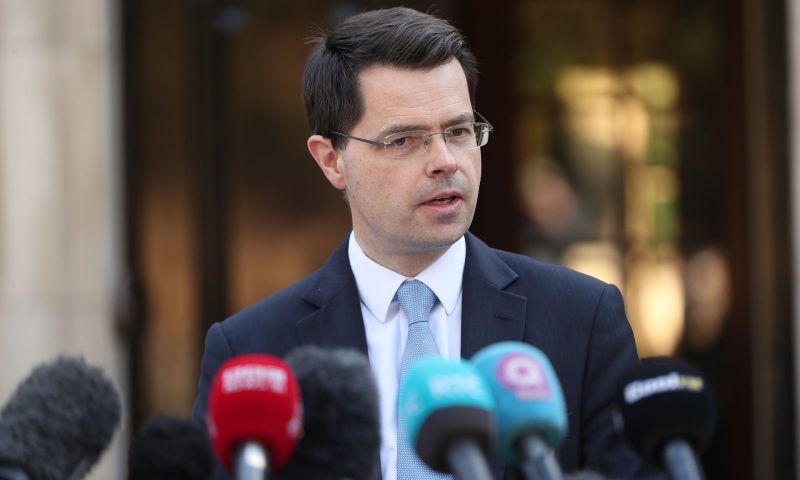
While much of Britain’s attention has been on the latest twists, turns and turmoil over Brexit, Northern Ireland has been quietly self-immolating in the corner. The country’s power-sharing parliament collapsed in January after Sinn Féin refused to partner the Democratic Unionists any longer. The deadline for the parties to reach a resolution and save Stormont was Monday – but it came and went without a deal being reached.
Just 48 hours before Theresa May was due to trigger article 50, her Northern Ireland secretary, James Brokenshire, took to the steps at Stormont House to announce that Northern Ireland no longer had a government. Almost two decades after the Good Friday Agreement was signed, in 1998, the peace process lies in tatters.
The breakdown of power-sharing in Northern Ireland would always have been gravely serious, but the clash with article 50 means the timing could hardly be worse. As of this week, either a new election will have to be called in Northern Ireland (its third in 12 months), or it may have to be ruled directly from London, in what would be a major step back in the peace process.
Regardless of the option taken, the people of Northern Ireland – who, like the Scottish, voted to remain in the EU – will be left without a government for much of the Brexit negotiations. This will cause considerable frustration locally, where many already resent what they see as London’s decision to drag Northern Ireland and Scotland kicking and screaming out of the EU against their will.
It will also further alienate Northern Ireland’s political parties, which have been vocal about feeling ignored by the prime minister during her plans to trigger article 50. The Democratic Unionists supported the leave campaign, but all other main parties at Stormont backed remain, including Sinn Féin, the Ulster Unionists, the Social Democratic & Labour party, Alliance and the Green party.
Equally, there is concern that if Northern Ireland now has to be run from London for a while, in a process known as “direct rule”, the prime minister will do a poor job of it simply because her mind will be on Brexit. Theresa May has shown a complete and utter lack of interest in Northern Ireland since taking office. Her time at No 10 is becoming increasingly defined by how she handles Brexit, and she knows it. She has done as little as possible to get distracted by “smaller issues” such as the trouble brewing across the Irish Sea.
However, whether May realises it or not, Northern Ireland is about to become the frontline in the Brexit battle, as the only part of the UK to share a land border with another EU country, the Republic of Ireland. This border, which stretches for miles between muddy hillocks and farmland, is now poised to become the UK’s frontier to the EU. Currently, EU freedom of movement means people can pass through without being searched or having passport checks.
In order for May’s hard Brexit to be enacted, this would necessitate change. It is unclear if a Trump-esque border wall will be required, or army checkpoints strategically scattered across particular points of the border. Any change will be deeply controversial in Northern Ireland, especially for nationalist and republican communities.
The region merited scarcely a mention in the run-up to the EU referendum, with neither Leave nor Remain campaigns grasping the complexity of how Brexit will affect Northern Ireland. Nine months after the referendum, no one in the British government seems any the wiser about the future of the Irish border.
It is astonishing that May is moving to trigger article 50 without seriously addressing this beforehand. Once negotiations with the EU formally begin and the official countdown to a deal deadline starts, she might just realise the enormity of the problem she has been sidelining thus far
Siobhan Fenton is a freelance writer. She writes mostly about gender, sexuality and politics. She is reading for an MA in journalism at City University, London.
